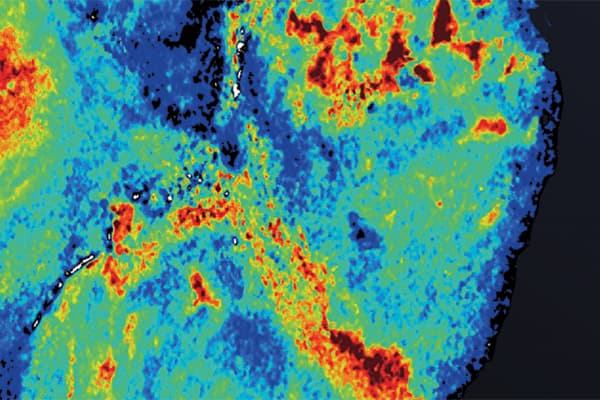It's easy to start your application.
PhD in Imaging Science
Program and application

PhD students in the McKelvey School of Engineering are fully-funded, with a competitive stipend and full tuition remission.
The PhD program in Imaging Science at Washington University in St. Louis is one of only two such programs in the U.S. and offers an interdisciplinary curriculum that focuses on the technology of imaging with applications ranging from cancer diagnosis to virtual reality.
What is Imaging Science?
Imaging Science is an interdisciplinary academic discipline that broadly addresses the design and optimization of imaging systems and the extraction of information from images. It builds on contributions from traditional fields including biomedical engineering, electrical engineering, and computer science, as well as from physics, applied mathematics, biology, and chemistry.
What can you do with a PhD in Imaging Science?
The high demand for personnel with training in imaging science is reflected in government policy and funding opportunities. Many academic, industrial, and national laboratory positions exist for highly qualified candidates. Graduates of the program will be prepared for careers in academic research or in industry that require expertise in the quantitative principles of imaging.
Curriculum Focus
- mathematical and computational principles of image formation
- image analysis
- image understanding
- image quality assessment
History
Washington University has been a leader in the technology and advancement of imaging science for more than 125 years. In the 1920s, WashU researchers were the first to use X-rays to view the gallbladder. In the 1970s, research by Michel Ter-Pogossian at the university’s Mallinckrodt Institute of Radiology led to the development of the PET scanner.
Students will apply directly to the PhD Program in Imaging Science.
Eligibility
-
Students should hold an undergraduate or master’s degree from an accredited university in engineering, mathematics, computer science, physics, or other quantitative discipline.
Funding/Support
- Each graduate student will receive a one-year (12 months), university-funded, fellowship.
- Once the student has joined a research lab and designated a thesis adviser, the thesis advisor will assume full financial responsibility of the student.
Deadlines
- December 15 — Application
- March 15 — Decision
- April 15 — Reply Required
